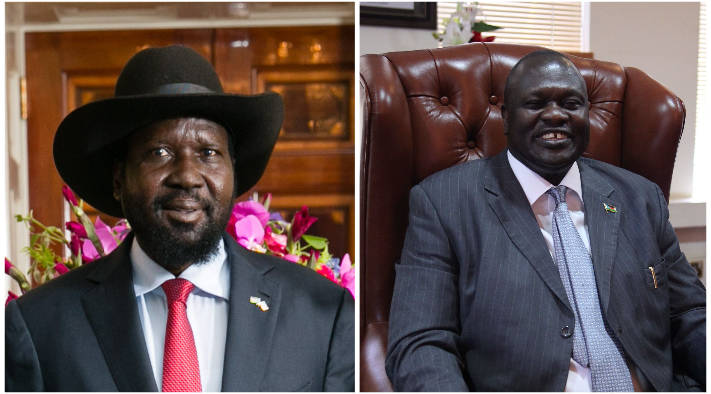As Peace Process Stalls, US Imposes Sanctions on South Sudanese Officials

The U.S. announced sanctions targeting two South Sudanese officials as a deadline for forming a national unity government is again moved back.
After much frustration over stalled efforts to form a unity government in South Sudan, the United States Department of Treasury officially announced sanctions on two of South Sudan’s highest-ranking officials. Both the Minister of Cabinet Affairs, Martin Elia Lomuro, and Minister of Defense and Veteran Affairs, Kuol Manyang Junk, are now blacklisted for what the U.S. says is their involvement in hampering South Sudan’s peace process and profiting from South Sudan’s war economy.
According to Al Jazeera, U.S. Deputy Secretary of Treasury Justin Muzinich accused Lomuro of recruiting and organizing local militias to attack opposition forces in South Sudan, where a fierce civil war broke out in 2013 just two years after independence from the central government of Sudan.
Juuk was accused of not removing forces from the battlefield, instigating violence between rival tribes and preparing militias for the possibility of renewed violence.
The U.S. sanctions freeze any U.S. assets held by Lomuro and Juuk and prohibit any transactions between U.S. citizens and the officials.
South Sudan Civil War
South Sudan, which is considered the youngest sovereign state in the world, was established in 20011 following more than two decades of conflict with the regime of the recently deposed Sudanese dictator-president, Omar al-Bashir.
Since 2011, the young state has been fraught with internal conflict. South Sudan descended into a civil war between the state’s President Salva Kiir and his former Vice President Riek Machar, rendering millions of people into starvation and abuse, including sexual mutilation and murder. Kiir accused Machar of plotting a coup against him in 2013, leading to the conflict between the two sides. Machar denied the allegations.
In 2018, both sides agreed to a historic peace deal that would end the conflict, which has claimed the lives of hundreds of thousands of people, displacing over 2 million others and rendering the young country in need of food aid. As part of the deal, the two sides agreed to form a transitional government by November 12, 2019, with the aim to hold elections in three years.
However, the deadline for the transitional government was not met and most recently pushed back to February of 2020. The delays have frustrated the U.S. government which, in late November, warned of possible impending U.S. sanctions.
Potential for Violence Lingers
While the truce deal between Kiir and Machar brings hope that South Sudan is moving beyond the war that has plagued the country since gaining independence in 2011, peace is tenuous and the potential for more violence lingers nearby.
“We do not predict that failure is inevitable nor necessarily imminent. However, there are plenty of signs that the hopeful outcome we describe may not come to pass,” wrote the U.S. Institute of Peace in a report detailing the potential next steps for South Sudan.
“Counting on ‘Plan A’ is not enough, even as efforts to hold the R-ARCSS signatories to their commitments remain vital. After nearly six years of brutal conflict, two security collapses in Juba, and innumerable atrocities committed by all sides, South Sudan can barely afford a scenario of merely hope for the best.
“If ‘Plan A’ does not work, it is time for a fundamentally different strategy: one that builds a public case for and puts in place the means to a leadership transition from the current generation of politicians; swiftly moves to establish accountability and investigatory mechanisms to address those most responsible for serious crimes committed during the conflict; and introduces a new, credible mediation framework, led by states other than those that have so far mediated the crisis.”











